TERENCE CLARKE thinks the strength and beauty of the artist’s work lies not in his technical gifts but his unique way of seeing. He explains why

Looking at a great painting by Paul Cézanne can make us think about how it was made and how it operates as a work of art. I think it’s important to understand that the artist, like his contemporaries Vincent van Gogh and Paul Gauguin, was, in a sense, untutored.
He lacked the natural drawing facility that would have gained him entry into the atelier system proper. His early paintings show little finesse and his development to maturity in 1887-8 – when he painted this picture, Pot of Primroses and Fruit – had been slow and difficult. His training had largely been before nature in Provence and Pontoise with Camille Pissarro. If one compares his early work to Claude Monet’s, you can see Cézanne’s natural gifts were limited.
I also think he had a poor visual memory. The translation of observed facts onto a canvas is essentially a function of memory. One looks, memorises and then makes a mark. A glance at his invented figure work reinforces my impression. Finally, I think he never understood the conventions of perspective in the way that, say, Edgar Degas instinctively did. For Cézanne, each act of memory or “sensation” was hard won.
HOW DID HE DO IT?
Diese Geschichte stammt aus der February 2019-Ausgabe von Artists & Illustrators.
Starten Sie Ihre 7-tägige kostenlose Testversion von Magzter GOLD, um auf Tausende kuratierte Premium-Storys sowie über 8.000 Zeitschriften und Zeitungen zuzugreifen.
Bereits Abonnent ? Anmelden
Diese Geschichte stammt aus der February 2019-Ausgabe von Artists & Illustrators.
Starten Sie Ihre 7-tägige kostenlose Testversion von Magzter GOLD, um auf Tausende kuratierte Premium-Storys sowie über 8.000 Zeitschriften und Zeitungen zuzugreifen.
Bereits Abonnent? Anmelden

Still life IN 3 HOURS
Former BP Portrait Award runner-up FELICIA FORTE guides you through a simple, structured approach to painting alla prima that tackles dark, average and light colours in turn
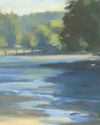
Movement in composition
Through an analysis of three masterworks, landscape painter and noted author MITCHELL ALBALA shows how you can animate landscape composition with movement
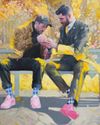
Shane Berkery
The Irish-Japanese artist talks to REBECCA BRADBURY about the innovative concepts and original colour combinations he brings to his figurative oil paintings from his Dublin garden studio

The Working Artist
Something old, something new... Our columnist LAURA BOSWELL has expert advice for balancing fresh ideas with completing half-finished work
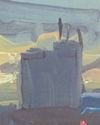
Washes AND GLAZES
Art Academy’s ROB PEPPER introduces an in-depth guide to incorporating various techniques into your next masterpiece. Artwork by STAN MILLER, CHRIS ROBINSON and MICHELE ILLING
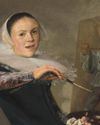
Hands
LAURA SMITH continues her new four-part series, which encourages you to draw elements of old master paintings, and this month’s focus is on capturing hands

Vincent van Gogh
To celebrate The Courtauld’s forthcoming landmark display of the troubled Dutch master’s self-portraits, STEVE PILL looks at the stories behind 10 of the most dramatic works on display
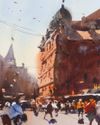
BRING THE drama
Join international watercolour maestro ALVARO CASTAGNET in London’s West End to paint a dramatic street scene
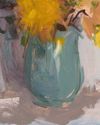
Serena Rowe
The Scottish painter tells STEVE PILL why time is precious, why emotional responses to colour are useful, and how she finds focus every day with the help of her studio wall

Bill Jacklin
Chatting over Zoom as he recovers from appendicitis, the Royal Academician tells STEVE PILL about classic scrapes in New York and his recent experiments with illustration